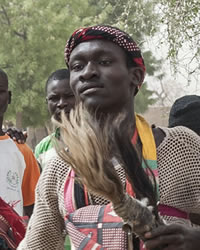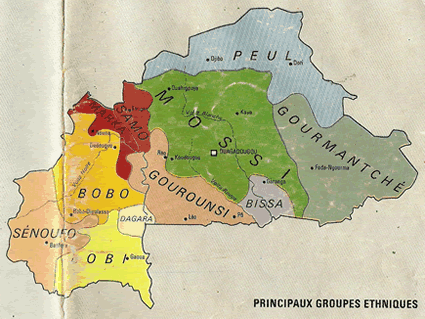The Mossi people constitute the largest single people group in Burkina Faso, occupying a large area in the center of the country. The historic Mossi Kingdom ruled the land until French colonial powers arrived in the nineteenth century.
The Mossi people are most numerous in West African countries, especially Burkina Faso. They also live in Cote d'Ivoire, Ghana, Mali, Niger, Senegal and Togo. A smaller number have migrated to Western Europe or North America.
Wrestling, going to the market, and visiting neighbors are other common recreations for the Mossi people in West Africa. They celebrate many traditional festivals that include dancing, drinking and singing. Funerals, marriages and circumcisions are important ceremonies, as are mask festivals, a harvest "Feast of the Chief," and an enthronement ceremony to crown a new Chief or King. A King still rules and influences the Mossi people today, although he has lost all legitimate political power.
The Mossis speak Moore and are very proud of their mother tongue. Publications in the vernacular include the entire Bible, song books, pamphlets on health care and culture, and university linguistic reports. There are many primary schools, and some can read in French or Moore, but there is a great need for an extensive literacy effort.
Despite numerous churches and their own Bible translation, the Mossi remain largely animistic. Those who live in villages are reluctant to change, and cling tightly to spirit worship and the use of sacrifices. Therefore, in Niger they continue to waver between faith in Christ and faith in the spirit world.
More literacy work, evangelistic films, and unity among different Christian groups may help spread the good news among the Mossi people. They need to take their spiritual lives seriously enough to put Jesus Christ first in their lives.
Pray for biblical materials to make their way into every Mossi household.
Pray for a spiritual hunger that will drive them to the foot of the cross.
Pray for Mossi disciples who will make more disciples.
Scripture Prayers for the Mossi in Niger.
| Profile Source: Joshua Project |














